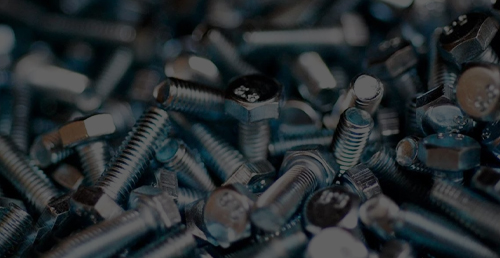Chemical Fix for Securely Anchoring Bolts in Construction Applications
The Importance of Chemical Fix Anchor Bolts in Modern Construction
In today's construction industry, the need for robust and reliable anchoring solutions has never been greater. As buildings and infrastructures become increasingly complex, engineers and contractors are continually seeking methods to ensure safety, stability, and durability. One such solution that has gained significant attention is chemical fix anchor bolts. This innovative anchoring system combines the strengths of traditional mechanical anchors with advanced chemical bonding techniques, making them an essential component in contemporary construction.
Understanding Chemical Fix Anchor Bolts
Chemical fix anchor bolts consist of two main components the bolt itself and a chemical adhesive, usually a resin or epoxy. Unlike conventional anchors, which rely solely on mechanical interlocking, chemical anchors use a chemical bonding process to secure the bolt within a drilled hole in concrete, masonry, or other materials. When the resin is injected into the hole, it fills any voids and offers a more uniform distribution of load across the bonded surfaces.
These anchors are particularly beneficial in applications where high loads and shear strength are necessary, such as in heavy machinery installations, structural reinforcements, and dynamic loads, where vibration or movement may exert additional stress on the anchoring system.
Advantages of Chemical Fix Anchor Bolts
1. High Load Capacity One of the most significant advantages of chemical fix anchor bolts is their ability to withstand high loads. The chemical bond created between the bolt and the substrate distributes the load more effectively than mechanical anchors, making them suitable for critical applications.
2. Versatility Chemical anchors can be used in various materials, including concrete, brick, stone, and hollow block. Additionally, they can be applied in different temperature conditions, accommodating both interior and exterior installations.
3. Resistance to Corrosion The chemical adhesives used in these anchors are often designed to be resistant to moisture and environmental degradation, providing long-lasting performance in challenging conditions.
4. Ease of Installation Installing chemical fix anchor bolts is generally straightforward. After drilling the hole to the specified depth and cleaning it of dust and debris, the adhesive is injected, and the bolt is inserted. This process can be quicker and require less skill compared to traditional methods.
chemical fix anchor bolts

5. Adjustable Cure Times Depending on the formulation of the adhesive, workers can choose products with varying cure times, allowing them to adjust their installation pace depending on project timelines and environmental conditions.
Applications in Construction
The use of chemical fix anchor bolts spans a wide range of applications. In commercial construction, they are often employed in securing beams, columns, and structural facades. Additionally, chemical anchors are invaluable in bridge construction, where they provide critical support to various structural elements.
In residential projects, these bolts are commonly used for anchoring decks, fences, and heavy appliances to ensure stability and safety. Furthermore, the rapid rise of green building practices has highlighted the importance of chemical anchors in minimizing disturbances to existing materials and environments during renovations.
Challenges and Considerations
Despite their numerous advantages, it is essential to understand the limitations and considerations when using chemical fix anchor bolts. Proper installation is crucial. Factors such as temperature, humidity, and the cleanliness of the hole can significantly impact the effectiveness of the chemical bond. Therefore, adherence to manufacturer guidelines and industry standards is vital.
Moreover, while chemical fix anchor bolts can provide exceptional performance, they may not be suitable for every application. In situations where service temperatures are critical or where there are extreme loading conditions, engineers must evaluate and select the appropriate anchoring solution.
Conclusion
In conclusion, chemical fix anchor bolts represent a significant advancement in anchoring technology, offering unparalleled performance, versatility, and ease of use. As the construction industry continues to evolve, the adoption of these innovative systems will play a crucial role in enhancing the safety and durability of structures. As with any technological advancement, understanding their strengths, limitations, and proper installation techniques will ensure that chemical fix anchor bolts remain a cornerstone of modern construction practices.
-
Wedge Anchor Bolts: Secure Fastening SolutionsNewsAug.05,2025
-
Insulation Fixings: Secure and Durable SolutionsNewsAug.05,2025
-
Full Threaded Studs: Versatile Fastening SolutionsNewsAug.05,2025
-
Expanding Fasteners: Secure and Reliable SolutionsNewsAug.05,2025
-
Butterfly Toggle Anchors: Secure and Easy to UseNewsAug.05,2025
-
Bracing Solutions for Steel StructuresNewsAug.05,2025
